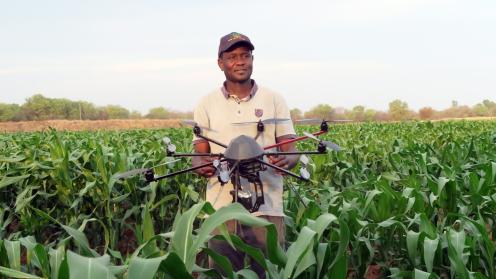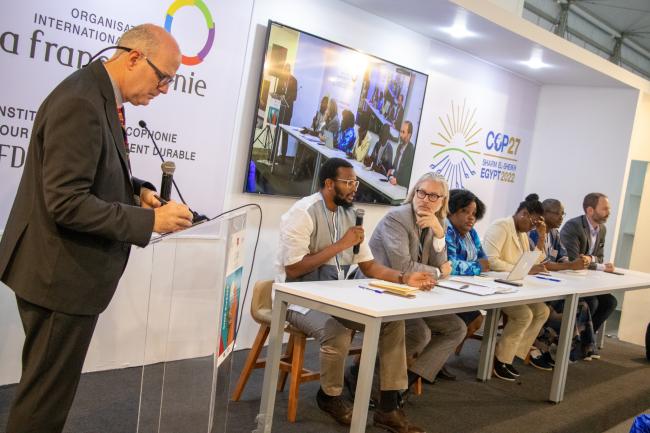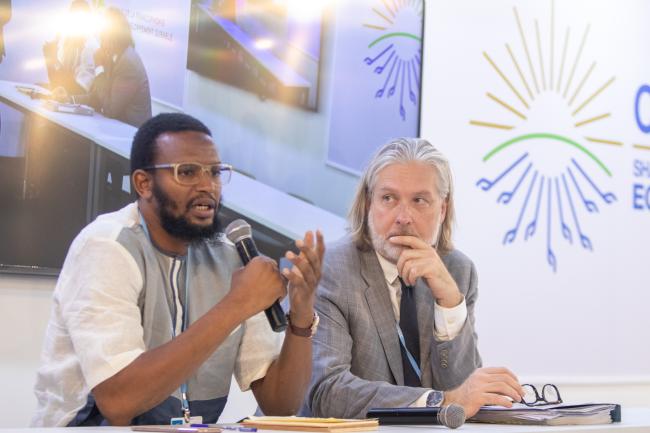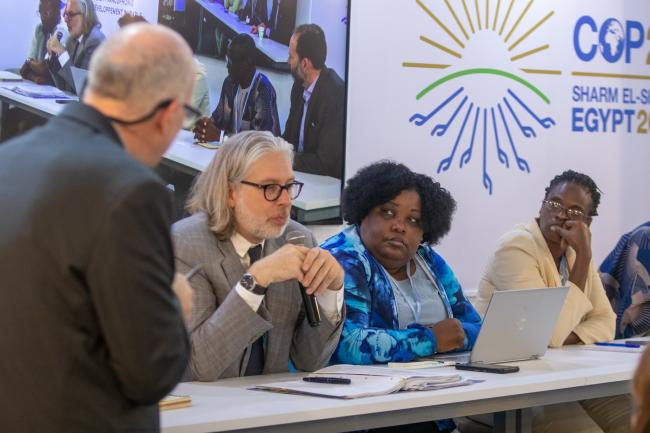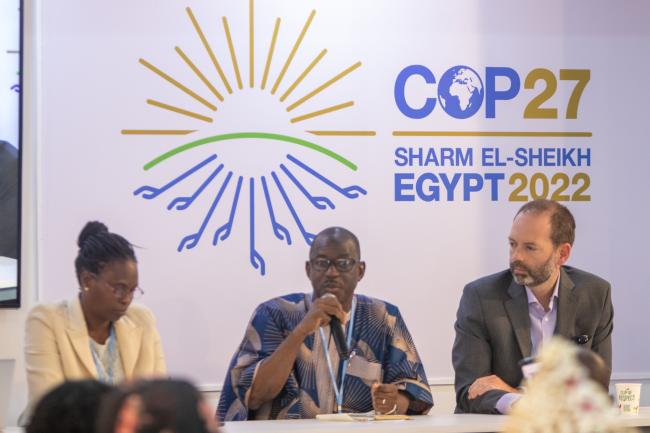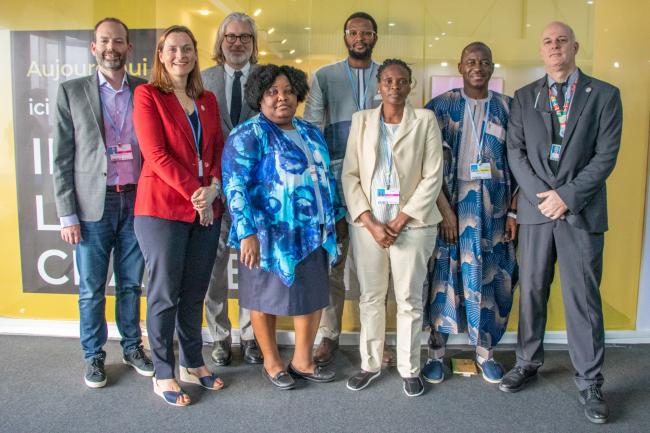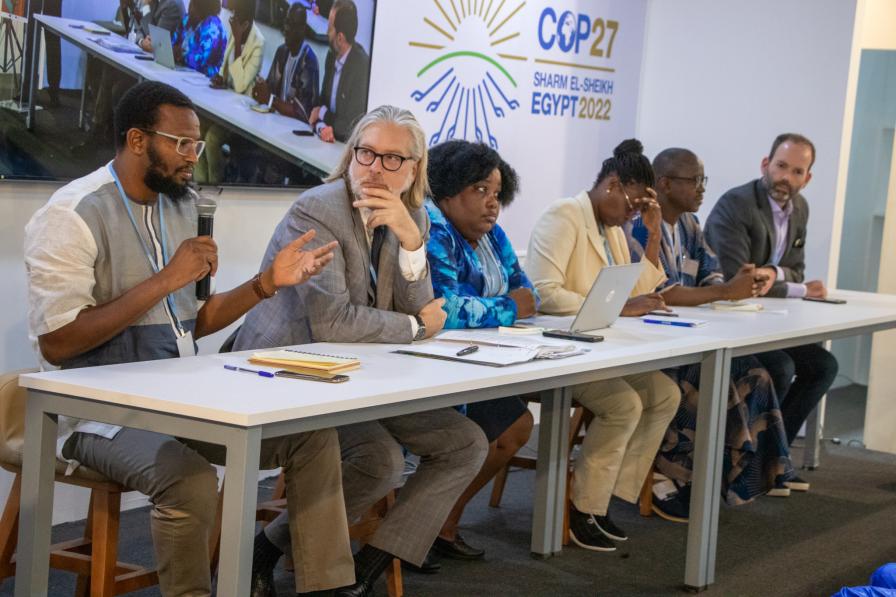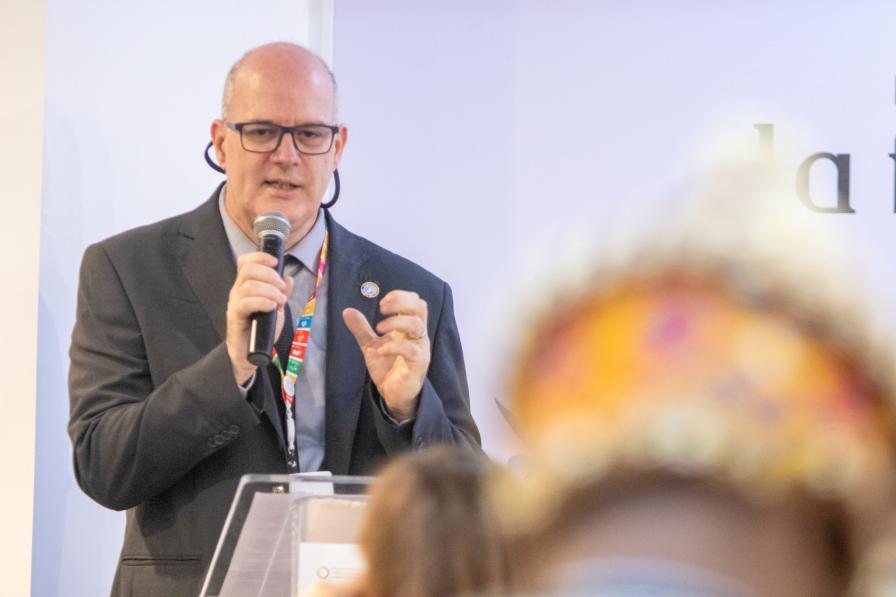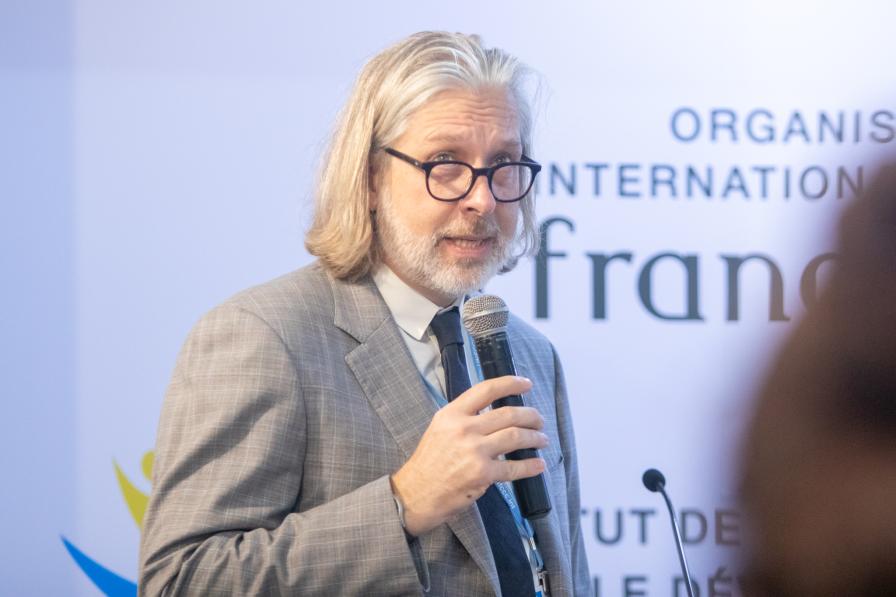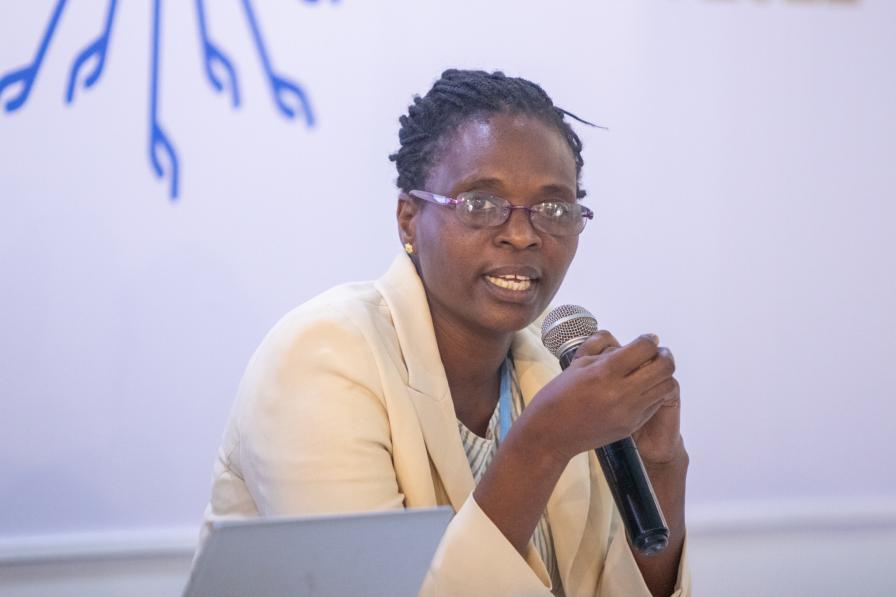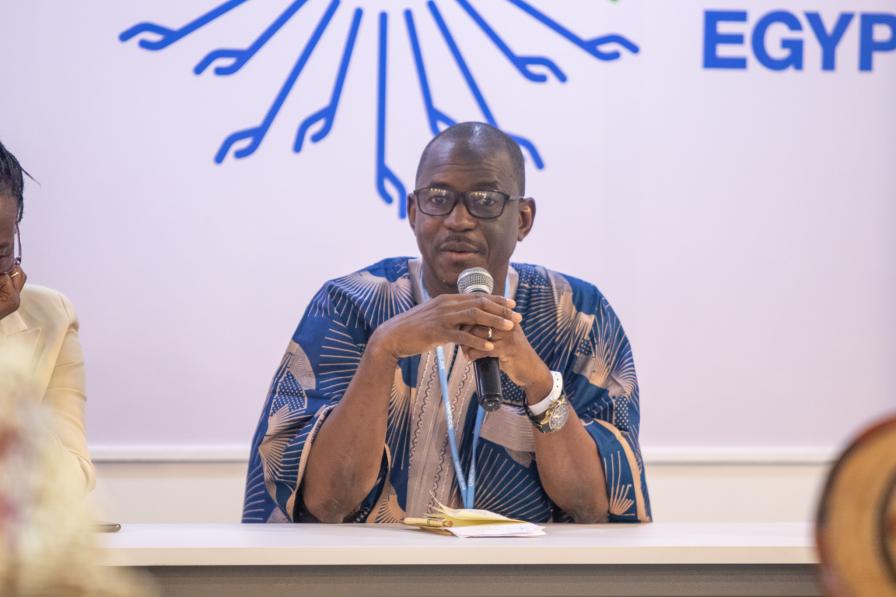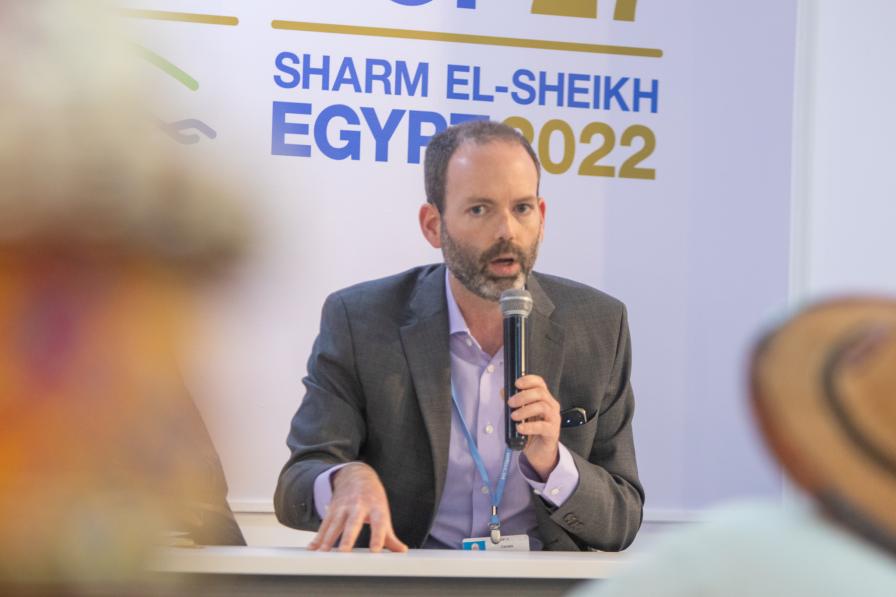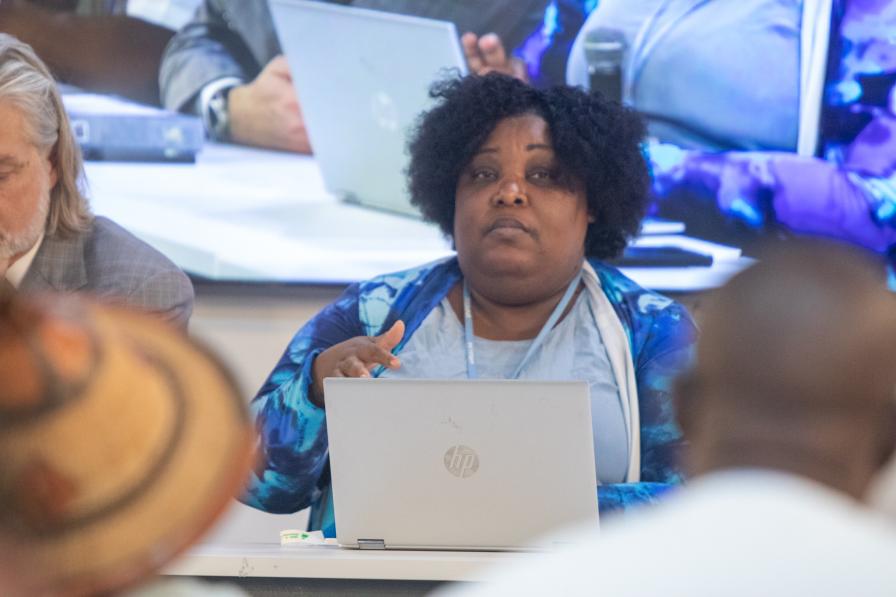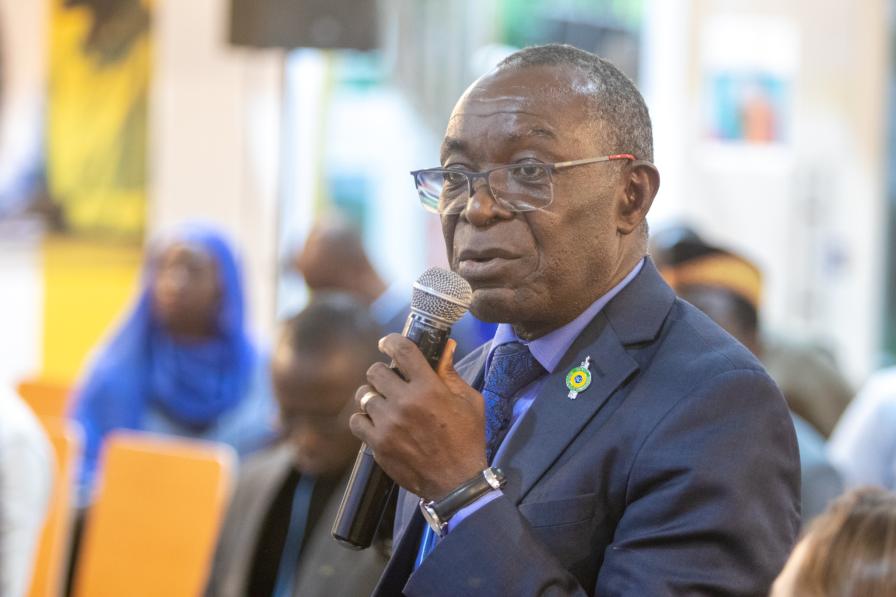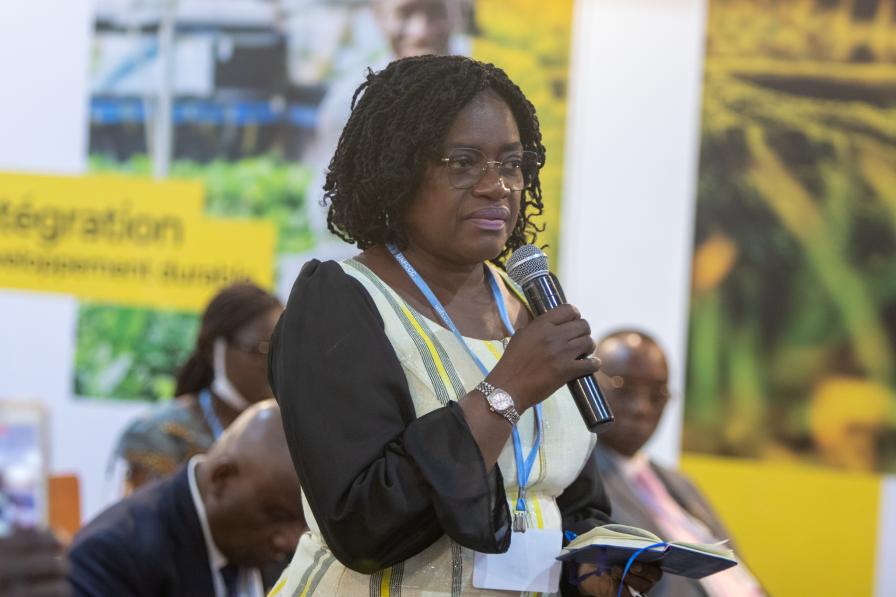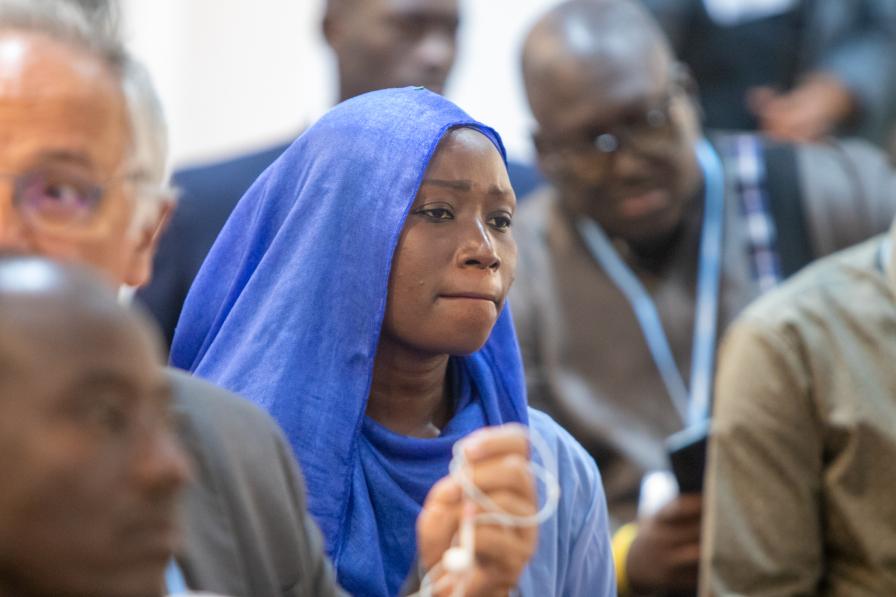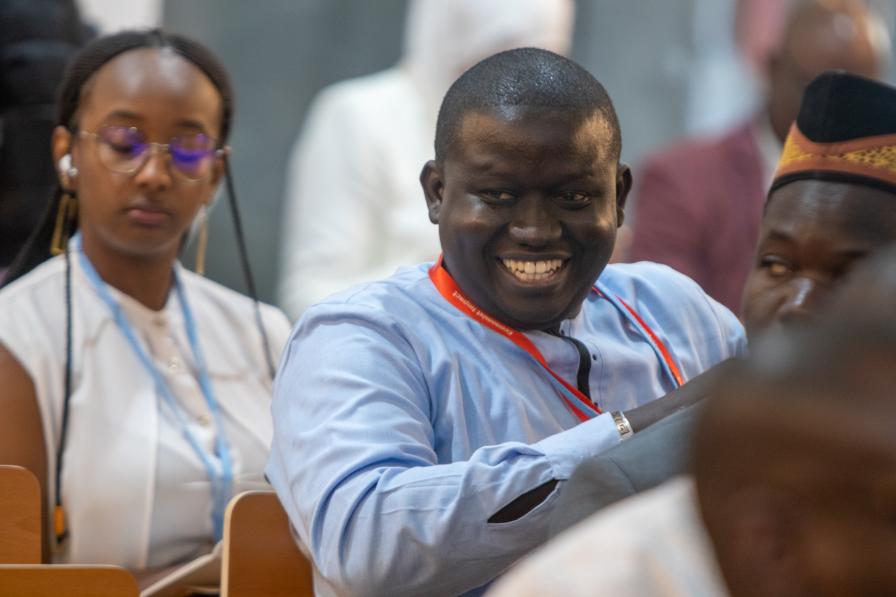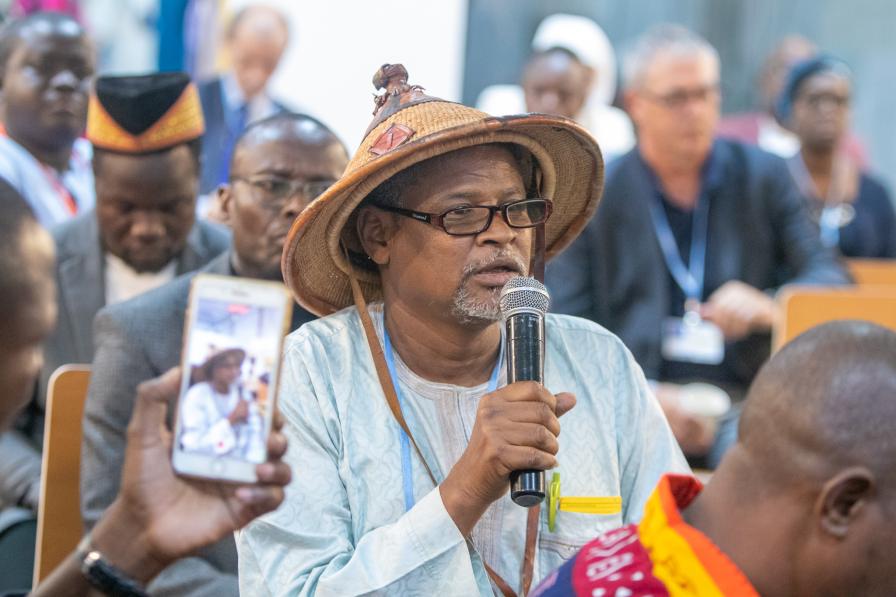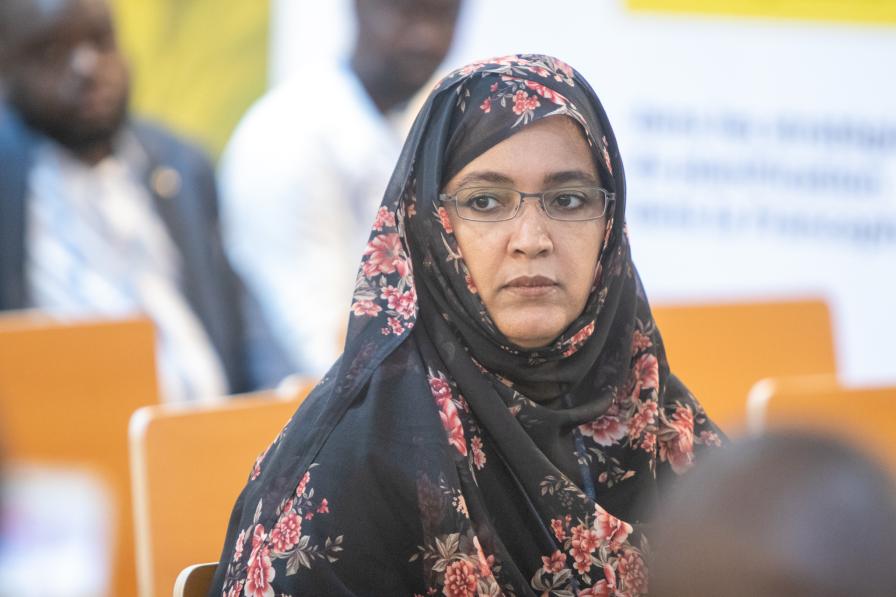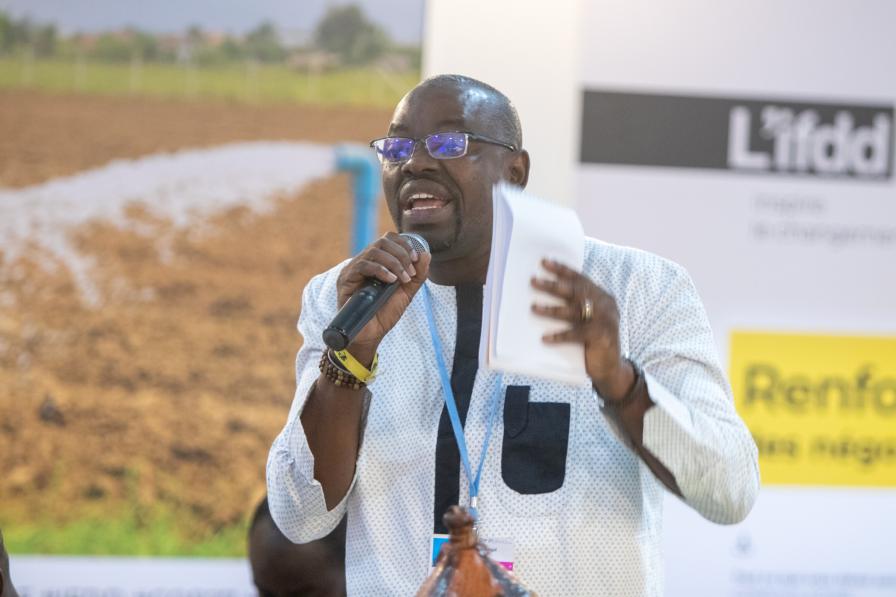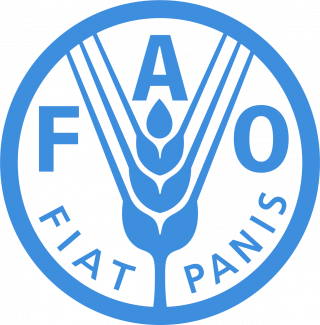About
Drawing on a wide range of Francophone perspectives, including researchers and policymakers, this COP 27 event explored how governments can better coordinate their actions on agriculture and climate at the national and global levels.
Increasingly severe weather events such as heat waves, heavy rainfall, and droughts cause food production disruptions and rising food commodity prices, disrupting lives and livelihoods across the world. For this reason, food security must become central to discussions on climate adaptation. Drawing on a wide range of Francophone perspectives, including researchers and policy makers, this event explored how governments can better coordinate their actions on agriculture and climate at the national and global levels. This French-language event was moderated by Martial Bernoux, Food and Agriculture Organization of the UN (FAO).
In keynote remarks, Geoffroi Montpetit, Administrator, Organisation Internationale de la Francophonie (OIF), said food insecurity affects already vulnerable communities the most. Noting the impact of COVID-19 and rising food commodity prices on poorer regions, he cited a “worrisome” International Monetary Fund study that estimates that combating food insecurity will require USD 50 billion dollars. COP 27, he continued, was a reminder of the urgency of the issue at hand, and an opportunity to discuss best practices for adapting the food industry to the changing climate. He explained the goals of Nexus, an OIF project that seeks to create synergies among Francophone actors working in the areas of agriculture, water, biodiversity, and climate change, among others.
On the theme on how to collaborate with multiple actors on mitigation and adaptation, Ousseynou Ka, Conseil National de Concertation et de Coopération des Ruraux, explained his organization’s role as a national platform that conducts research and coordinates projects with communities, local authorities, and other actors, as well as that acts as an interlocutor with the Senegalese government. He explained that efforts to collaborate extend beyond national borders, as exchanges of views and perspectives also happen in West Africa, at the regional level.
Representatives of Haiti and Senegal then took the floor on their experiences with FAO’s Strengthening Agricultural Adaptation (SAGA) project, which seeks to increase adaptation capacities for food security and nutrition in both countries. Gerty Pierre, Ministry of Environment, Haiti, described SAGA’s role in supporting the development of the country’s National Adaptation Plan (NAP) process and Nationally Determined Contribution (NDC) revisions, including through consultation processes with stakeholders. After noting that, through the programme, over 600 farmers received adaptation capacity-building training, she called for a ”SAGA 2” project, which would capitalize on the gains of the first one.
Dibor Sarr Faye, Ministry of Environment and Sustainable Development, Senegal, similarly described SAGA’s role in supporting the country’s NAP process, which began in 2015. To do so, she noted, the country has chosen a sectoral and participative approach to gather detailed data on each sector and to ensure they are involved. She added that, to capture the breadth of “national sensibilities,” consultations must include multiple actors, including academia, local governments, and grassroots organizations.
On the role that international organizations can have to favor multi-stakeholder collaborations, Mamadou Goïta, Institut de Recherche et de Promotion des alternatives en Développement, said these can act as platforms to encourage convergence between different actors. He gave the example of a national platform in Mali that works “horizontally” with farmers, local communities, and state actors to create synergies and further the agroecological transition. Hugo Beauregard-Langelier, Secretary-General, Union des Producteurs Agricoles, added that international conferences such as COP 27 should energize participants to further their work, help them develop a strong network, and break down silos that stem from, he argued, different organizational cultures.
In response to a question from the moderator on what could be improved about the experience of attending a climate conference, panelists noted, among others, the need for: discussions on the lack of resources many countries face when tackling food insecurity; mechanisms to ensure collaborations that stem from participation continue after these are over; and more prominence for the agro-food industry in the negotiations. Panelists then heard comments and questions from the audience, including on the need for all NDCs to include food security and for pastoralists to be included in consultations on this theme.
Organizers: FAO, in collaboration with the governments of Quebec, Senegal, and Haiti, and the Institut de la francophonie pour le développement durable (IFDD)
Contact: Awa Mbodj I saga@fao.org
For more information: epavillonclimatique.francophonie.org/programmation/167
To receive free coverage of global environmental events delivered to your inbox, subscribe to the ENB Update newsletter.
All ENB photos are free to use with attribution. For photos from this side event, please use: Photo by IISD/ENB | Matthew TenBruggencate.
